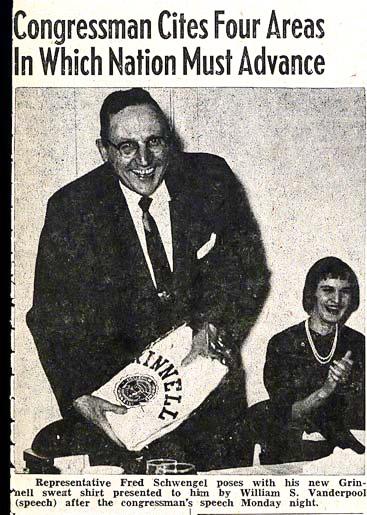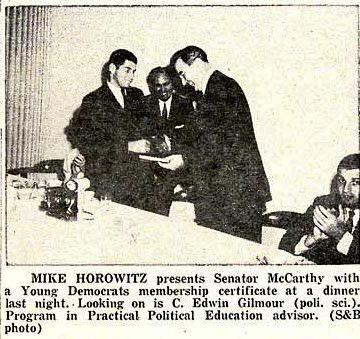

Political Science professor Barbara Trish is working to bring the Program in Practical Political Education (PPPE) — an organization that was influential in the 1960s and has since fallen into relative inactivity — back into Grinnell College campus life.
According to a report on the history of the PPPE by Anna Bosak ’12, the program was created in 1959 with the intention of fostering appreciation for state and local politics within the College’s student body. Professor C. Edwin Gilmour, then-director of the program, created the PPPE in response to what he considered to be a dearth of interest in politics within the student body. In a PPPE grant proposal to the Falk Foundation — a national foundation that allotted yearly grants for academic institutions promoting political awareness among students in the 1960s — Gilmour wrote that “it must be admitted that the political awareness, let alone the political participation of the Grinnell student body, is less evident than might be hoped for.”
From its inception in 1959 and until Professor Edwin Gilmour took leave of the program in 1970, the PPPE sponsored internships in state legislative offices, held mock presidential elections and conventions in which up to 80 percent of the student body voted and brought former presidents Harry Truman and Dwight Eisenhower to the College to not only deliver speeches but also to meet with student organizations and sit in on classes.
According to Bosak’s report, as students’ interest in politics shifted from the electoral to the direct action-based civil rights and antiwar movements, Gilmour opened the PPPE up to a range of political organizers, including activist Julian Bond, who gave a lecture entitled “The Political Outsiders: The Poor, The Black, The Young.” The College disapproved of the PPPE’s new direction, and in times of financial instability, dramatically reduced funds for the program, whose activities were put on hold indefinitely. The PPPE has remained an organization on campus, but its activities have diminished in scope and frequency since its heyday in the 1960s.
Now, Trish, the current director of the PPPE, hopes to bring the program back into student awareness. Rather than responding to a lack of student interest in politics, however, Trish sees the program as potentially complementary to existing student political engagement.
“I have thought about this for literally decades, but this just seems like a good moment,” Trish said. “I think there’s interest among [the students] who I talked to, some older alumni, and the administration.”
Like Gilmour, Trish envisions the PPPE bringing students closer to issues in current politics by allowing them to interact directly with individuals involved in the political process. The program could introduce students to technical aspects of work in politics by connecting students with, for example, alumni who work in journalism and computer science.
“I think that that there are all these jobs out there in politics that we might overlook,” she said. “And I think broadly it would include people who make the practice of politics work, so journalists, computer scientists, anyone who has their hand in it.”
In addition to connecting the campus with individuals in politics, Trish noted that by bringing politicians that represent a variety of political affiliations to campus, the PPPE could potentially promote more political dialogue within the College community.
“I do think that having people come to campus to talk about their work and what they do has the potential for a byproduct of maybe … facilitating open dialogue on campus,” Trish said. “I think that we are a stronger institution and individually politically if we have a breadth of ideas that are represented — I don’t feel like this program can ensure that this happens, but I think that’s one angle on it that might get people into the same room,” Trish said.
Although the specifics of the Program are yet to be determined, there is at least one way in which today’s PPPE will fundamentally differ from the Program’s original form. Unlike the PPPE of the 1960s, the new PPPE will not restrict its programming to the two-party political system.
“I can pretty much guarantee that it won’t be something that pushes for two-party politics,” Trish said, “but the exact form of that remains to be seen.”































































